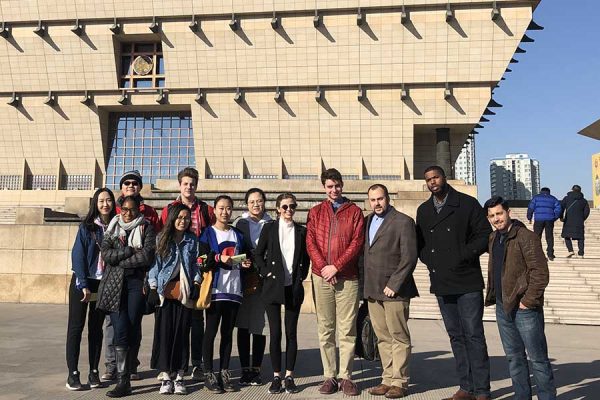Confucius Institute programs to transition as part of strategic planning effort

As an integral component of efforts to advance students’ knowledge and ability to thrive in a diverse, global society, UNC Charlotte will transition the Chinese language and culture programs of its Confucius Institute to the Department of Languages and Culture Studies in the College of Liberal Arts & Sciences on Dec. 31, 2020.
UNC Charlotte continues to enhance its globalization efforts, with particular emphasis on engagement with UNC Charlotte students and community and global partners. Although the Confucius Institute will be ending, Chinese language and culture programs will continue to play an important role at the University.
“During the next six months we will evaluate the Confucius Institute programming to determine which aspects fit within our college 2021-26 strategic plan, which we are currently developing,” said Nancy A. Gutierrez, dean of the College of Liberal Arts & Sciences (CLAS). “We will be guided by our commitment to prepare our students to thrive in a globalized world, and our efforts to expand relationships in the Charlotte region and worldwide.”
Since its programming began in early 2018, in partnership with Shanxi University, the Confucius Institute has supported Chinese language classes in area schools, under the schools’ supervision. It also has provided teaching assistants in UNC Charlotte classrooms, under the direction of UNC Charlotte faculty in the Department of Languages and Culture Studies. The teaching assistants have provided support through activities such as serving as conversation partners and tutors.
The Confucius Institute has hosted Chinese cultural events and provided training for Chinese language teachers and community members. Working with the University’s Office of International Programs and the Department of Languages and Culture Studies, it has offered support for college students to travel abroad. It also has hosted North Carolina’s annual Chinese Language Competition and partnered with organizations across the state to offer language and culture programs.
The CLAS strategic planning process will encompass a broad range of internationalization activities. These include study abroad, other experiential learning opportunities, faculty collaboration, robust relationships with partner universities and innovative classroom practices.